I'm thinking of something smaller than a laptop that i can spend my hours on the way to work doing project euler problems or such.
Any ideas?
I'm thinking of something smaller than a laptop that i can spend my hours on the way to work doing project euler problems or such.
Any ideas?
If you mean a programming platform, you could get a netbook like the ASUS EEE.
Or if you meant smallest programmable device, check out a PIC microcontroller:
This may sound crazy but try pen/pencil and paper. No you can't run the code but it'll help you to not use online references so much (yes they are good but memory skills help us all) and it'll probably also help you plan your code better.
I've programmed directly on my HP 48G series calculator.

There's a good programming tutorial for it here. I'll have to dust it off and see if it will pass Project Euler's one-minute rule.
If you are looking for a microcontroller or similar my advice to you would be to check out either an AVR, PIC, Arduino, or BeagleBoard.
All are relatively cheap and easy to program (the first three more so). AVR's and PIC's are types of microcontrollers that you can program with C or ASM, however you will need some type of prototyping board or similar to achieve anything. An Arduino is an AVR chip sitting on a board, so it is much easier to achieve something in a small amount of time. In addition to this they are quite popular and you can find many projects that have been done at Hackaday. Lastly BeagleBoard is a much gruntier board that will run embedded linux.
My recommendation is for the Arduino.
There are many more suggestions here.
However, If you are looking for a small laptop device to program you have plenty of options. An Asus EEE pc, HP 2133 (I believe thats the correct model), MSI Wind, MacBook Air etc etc. As other people have suggested check out some netbooks. There are also various PDA's or mobile phones that you could program, such as an Android phone or an OpenMoko phone. There are plenty of options, I suggest you find out what size you are looking for specifically and that will narrow down your choices.
Good Luck.
I'll take the reputation hit to say this: why not read a book or watch the scenery go by? Trying to cram more programming into your day isn't actually good for you, and may even make you less productive.
I have used SmallBASIC on my Palm OS 5 device for a while now, and it seems to work well with most of the problems I throw at it.
A netbook would be ideal.
A graphing calculator might be too limited for programming.
If you're talking about doing a microcontroller, there are several models of arduino boards that are very easy for someone not familiar with embedded programming.
I have a Nokia E51 with python interpreter. It's not pleasant to type with a numeric keypad at all. I think it is as small as you can get.
I have a Samsung i760 running Windows Mobile 6. The slide-out keyboard is fantastic (best mini-keyboard on any device) - I can type on it almost as fast as a normal keyboard. I mainly use it to write Oracle Lite queries in mSQL, which is borderline unusable with any other PDA keyboard.

This question led me to wonder about real programming environments for this device, so I asked another question, and one of the answers was a link to this, which is a Windows Mobile IDE for creating .NET Windows Mobile applications. You write them in C#, even.
It's pretty subjective. I code on my commute using a 15.4" laptop and I find it quite limiting.
I could still work at 13", but the limitations would be getting so large I'd already be questioning if it's worth it. Anything smaller would be right out.
But then I tend to work with lots of windows open. Multiple editors, docs, browsers etc. Cutting back on that eats into my productivity. At home I have a 30" display. At work I have 2x 24" displays.
If you tend to work mostly in one window, rarely consult docs and other apps etc, you could probably go smaller.
It depends so much on the type of person you are, what you are comfortable with, the way you work, what you are working in and with... the list goes on.
My guess is that for most developers 13" is going to be the smallest before it gets so frustrating that you're better off just listening to podcasts or something - but YMMV - and will!